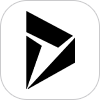
Application cloud hosting is a process by which users get access to websites and applications through cloud computing resources. While traditional application hosting uses a single server for hosting workloads, application cloud hosting, on the other hand, uses a cloud infrastructure to distribute services across a network of servers. From this blog, you can learn a basic understanding of application cloud hosting along with its features and use cases.
What are the features of application cloud hosting?
The process of application cloud hosting involves a cloud service provider (CSP) controlling the setup, security, and maintenance and distributing computing, storage, and networking resources to multiple virtual machines situated at different locations. Some major and essential features of cloud application hosting include:
Distributed IT resources:
Application cloud hosting does not rely on a single server in a physical site, instead, it uses multiple IT resources across various virtual machines that are situated at different locations. Application cloud hosting enables users with an endpoint and strong internet connection to access the content from any place or location.
Flexible resource scaling:
Traditional application hosting only allows scaling up operations either by installing new server units or by updating the existing equipment. It is a complex process that also involves the risk of experiencing poor service due to the inability to cope with the growing applications. Therefore, it’s much simpler and more efficient to work with application cloud hosting service providers with whom you can scale up resources as your demand expands easily.
Flexible pricing:
The cloud service providers follow a pay-as-you-go pricing scheme for the application hosting services they provide. Thus, collaborating with a CSP will reduce your organization’s expenses to a great extent, as you don’t need to purchase any additional hardware, software, or cybersecurity solutions and applications.
Automated solutions:
The cloud service providers will give you automated tools such as API application programming interfaces or web portals to monitor the application demands. Leveraging these tools, your company’s IT team can manage the performance of an application and enhance resources effectively.
What are the advantages of using application cloud hosting?
Let us consider all the advantages of utilizing application cloud hosting through the following points:
It is a cost-effective solution:
Application cloud hosting is a cost-effective solution for businesses and organizations. By leveraging application cloud hosting, organizations can largely benefit from not having to pay any extra for buying or maintaining expensive servers. Thus, this is a great solution, especially for small to medium-sized businesses as they don’t need to exceed their budget lines any longer to invest in a huge IT team to take care of their infrastructure.
Application cloud hosting services are reliable and trustworthy:
Datacenters that support modern cloud infrastructure have advanced server racks, backup power supplies, and robust cooling systems, providing organizations with features that boost their performance. Organizations that use application cloud hosting services have higher security in the workspace with additional security features such as disaster recovery.
CSPs provide on-demand services:
Organizations using application cloud hosting services only pay for the services they require, that is, according to the demand. This system allows businesses to keep up during the peak times when they face surges in IT resource requirements.
Experience high scalability with application cloud hosting:
Application cloud hosting services are highly scalable. VMs are considered highly flexible because you can scale them up or down depending on the demand. Moreover, users also have the option to shift the VM to some other servers or even host them on multiple servers effortlessly. Users can move all the applications and workloads to a larger VM if necessary.
Application cloud hosting services come with multiple layers of security:
Cloud computing infrastructures offer several layers of security, enabling organizations to safeguard their resources from cybersecurity threats, authorized access, distributed denial-of-service, and so much more. Organizations that use application cloud hosting services get security features such as access control and data encryption to protect private applications and documents from being accessed by unauthorized users.
Are cloud-hosted and cloud-based the same thing?
Most people often get confused between cloud-hosted applications and cloud-based applications. Cloud-hosted application is an on-premises software hosted on dedicated physical servers or VMs by a CSP. Here CSP or the vendor will manage the services on behalf of the customer and also provide remote access along with the ability to integrate other solutions with it, hence your IT team does not need to manage the applications.
On the other hand, cloud-based applications are those applications that are deployed for cloud computing environments. Cloud-based applications are hosted in cloud infrastructures such as Amazon Web Services and Microsoft Azur, used by customers as SaaS (Software as a Service).
Another difference between cloud-hosted applications and cloud-based applications is that the former uses single-tenant architectures, while the latter uses multi-tenant architectures.















































































































